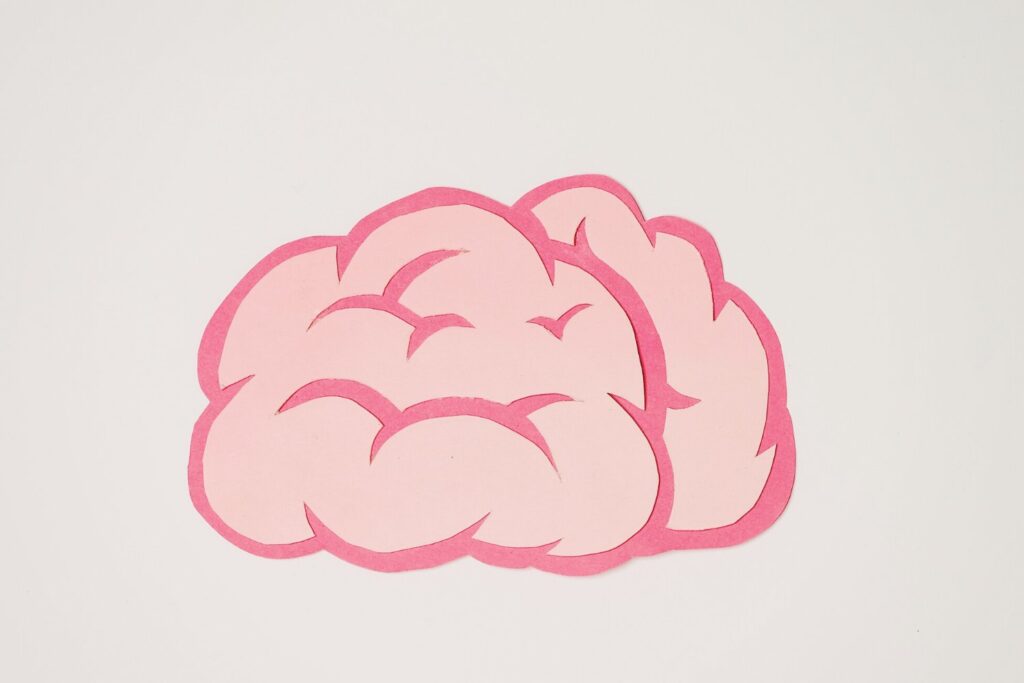What Happens When You Are Mindful?
Mindfulness is the practice of purposely focusing your attention on the present moment – and accepting it without judgment. Many people wonder what happens when you are mindful. Research shows that mindfulness changes the way our brains functions, leading to improved mental clarity and balance. Additionally, mindfulness has been shown to improve mental health, physical health, and even emotional well-being.
So, what happens when you are mindful?:
Mindfulness is a practice that teaches people to be fully aware and engaged in the present moment. It is a state of active, open attention on the present without judgment. Mindfulness can help reduce stress and anxiety, improve brain function, and increase physical and emotional well-being.
In this article we will look into what happens when you are mindful and how it can benefit many areas of your life.
What Happens In Your Brain When You Are Mindful

The practice of mindfulness has been proven to have a range of benefits in our lives. Many researchers have been wanting to find out which kind of changes actually takes place in the brain. Let’s look at some of the findings on how mindfulness can affect different areas of the brain.
Mindfulness Improves Learning And Reduces Emotional Reactions
There was a study done which looked at the effects of an 8-week Mindfulness Based Stress Reduction (MBSR) course. The results are similar to long-term meditation practice. The mindfulness practice showed changes in the areas known as the prefrontal cortex, the cingulate cortex, the insula and the hippocampus. These areas showed functional and structural changes.
The findings of this study match well with the benefits often seen from a mindfulness practice. For instance, better ability to learn and process information, which is helpful in study or work settings, or simply when reading a book. In addition, it was found that the amygdala decreased in activity, and wasn’t activated as long after an emotional reaction. This result is consistent with better regulation of emotions, as well as less reaction to stress and emotional situations.
Improves Ability To Focus With Less Judgement
Another research study found that the benefits of mindfulness was related to how it affects the thalamus. The findings suggest that the thalamus functions as a type of switch between mind-wandering and mindfulness. This could explain one reason why mindfulness practice improves the ability to focus on the present moment with less judgement and higher awareness.
Ongoing Mindfulness Research
There is continued ongoing research on mindfulness and it’s benefits. The ability of mindfulness to affect changes in the brain is due to what is called neuroplasticity. That term describes the brains ability to change and improve as required, even as we age. Mindfulness trains our ability to focus on the present moment, and can help reduce our tendency to react emotionally without conscious awareness. Practicing mindfulness will stimulate the brain to make neurological changes that helps support these benefits.
Learn Mindfulness Based Stress Reduction
Several research studies are being done based on the Mindfulness Based Stress Reduction (MBSR) methodology, which was developed by Jon Kabat-Zinn. If you would like to learn about that practice, then we recommend Mindfulness for Beginners by Jon Kabat-Zinn. This is an audio program wherein you can learn the seven key elements that are the basis of Mindfulness Based Stress Reduction. You can also explore five guided mindfulness meditations with Jon, and discover how you can improve your life by becoming more mindful of your breathing and by paying attention with a specific purpose.
What Happens In Your Body When You Are Mindful

The benefits of mindfulness don’t just affect your brain. Mindfulness has also been linked with improved physical health, and there are several ways in which it can help you stay healthier. One way is by reducing stress. When we’re stressed out our bodies go into “fight or flight” mode which causes all sorts problems over time, including increased blood pressure levels (and therefore heart disease risk), insomnia, or anxiety disorders among others.
Improves Immune System Function
Long periods of high stress levels can also have an impact on our immune system, making us more susceptible to things like the common cold or other infections and diseases. Mindfulness has been shown to help reduce the effects of stress, which in turn helps keep our immune system functioning better. For example, this research study found that a period of 8-weeks of mindfulness meditation improved immune system function.
Mindfulness Can Lead To Better Sleep
Additionally, the ability mindfulness has to reduce stress and allow your body to relax, can help you to sleep better. When we sleep better, our bodies have a chance to recharge and heal. This improves our ability to function optimally and focus during the day. You will also recognize how better sleep improves your mood.
Helps You Make Better Food Choices
Another way mindfulness can help improve our physical health is by helping us to make better food choices. When we’re stressed or our minds are wandering, we’re more likely to reach for unhealthy foods as a form of comfort. Mindfulness can help us to be more aware of what we’re eating, and when we’re eating it. This can lead to making better choices about the food we put into our bodies, and therefore improving our overall health.
Mindfulness Helps With Pain Management
Finally, mindfulness has been shown to help with pain management. When we’re in pain, our minds can tend to focus intently on the pain rather than anything else. This can lead to increased levels of stress over the pain, and decreased quality of life. Mindfulness has been shown to help people focus on the present moment rather than the pain, and as a result experience the pain less.
What Happens With Your Emotional Well-Being When You Are Mindful

Besides the effects on the brain and physical health benefits, mindfulness has also been shown to have positive effects on your emotional well-being. The benefits of mindfulness can be seen in people both with or without mental health conditions.
Mindfulness can help you to better regulate your emotions. This means that when something negative happens, you’re not as emotionally reactive as you might be if you weren’t practicing mindfulness. You’re more able to stay in control of your emotions, and don’t let them get the best of you.
Mindfulness Can Help You Become More Self-Aware
Additionally, mindfulness can help you to become more self-aware. This means that you’re more aware of your own thoughts, feelings, and behavior. When you’re more aware of yourself, you can start to make changes in the areas that need it. For example, if you notice that you tend to get angry easily, mindfulness enables you to have more awareness of what is causing this anger inside you. Then you can start to work on ways to manage your anger better.
Or if you find that you’re always stressed, mindfulness can help you to be more aware of when your stress is starting to build up, and give you strategies for how to deal with it before it gets too bad.
Positive Effects On Stress, Depression, Anxiety, And Well-Being
With mindfulness you can learn to focus on the present moment, which can help you let go of regrets of the past or worry about the future. These kinds of thoughts are not helpful in the here and now, and can lead to increased stress and anxiety. A research study reviewed several other studies of mindfulness. The results showed that mindfulness was effective in reducing stress, and also had positive effects on depression, anxiety, and well-being.
Mindfulness Can Increase Compassion And Understanding
Mindfulness can also help you to become more aware of your surroundings. When you’re more aware, you’re able to better understand the people and situations around you. This can lead to increased empathy, compassion, and understanding, which can help improve your relationships at work and in your personal life.
All of these benefits show that mindfulness can be a powerful tool in helping you to have a healthy and positive emotional life.
Although mindfulness can have many benefits, it may not be the best approach in every case. If you have a mental health diagnose like depression or PTSD, then it would be a good idea to consult a mental health professional before beginning a mindfulness practice.
How To Become More Mindful

Now that you know all of the amazing benefits of mindfulness, you might be wondering how you can start to practice it yourself. Below are a few tips for how to get started.
Practice Mindful Attention
A simple practice is mindful attention. This can be practiced by focusing your awareness on the surroundings, or any sensations that you are experiencing in the present moment. Additionally, if you are with someone else, you can practice focusing your attention intently on your interaction.
In this way, you can practice mindfulness even when at work and throughout your day. Simply by increasing your attention on your current task and having more awareness in the moment. When practicing mindful attention, you will often find that your mind starts to wander. That’s completely normal. When this happens you simply gently bring your attention back to your current activity or surroundings.
Learn Mindfulness Meditation
Another great way to practice mindfulness is through meditation. There are many different types of meditation that you could try out. In general, the purpose of mediation is to relax your mind. When thoughts or distractions come up, you simply acknowledge them and then let them go. You may find it helpful to focus on a specific thing like your breath to help your mind to not follow your thoughts.
Many people find it helpful to use a guided meditation. This is usually a recording from a meditation teacher, which is designed to help you focus and guide your attention. One of our favorite is Mindfulness Meditation by Tara Brach, which contains nine of her most effective guided meditation sessions. This audio program is perfect for beginning or deepening your mindfulness practice.
Another very helpful tool is Brain.fm. It’s an app and web service that provides science based functional music and soundtracks that support you in everyday activities. They offer focus tracks for when you need full and undivided attention on an important task, but they also have relaxation, meditation, and deep sleep modules that help you fully decompress and recharge. You can try it out for free, and if you afterwards choose to subscribe, you’ll even get a 20% discount by using our link.
You can find more of our favorite mindfulness resources and guides on our Resources page.
Conclusion
Mindfulness is a powerful tool that can help you to have a healthy and positive life. Let’s sum up what happens when you are more mindful.
Improves Brain Function
Research has found that it can improve brain function, which will allow you to better learn and process information. This will also help you to focus more easily throughout your day with less mind-wandering. In addition, these changes can make you less reactive to stress and emotional situations, and can improve your ability to stay calm.
The brain changes found could help explain how mindfulness enables us to have more awareness in the present moment. Having this higher awareness allows you to become more engaged, while at the same time less judgmental about whatever happens.
Physical Benefits
Furthermore, mindfulness has physical benefits. It helps to reduce the overall stress level in the body. This has many benefits such as the ability to help lower blood pressure, and to reduce stress and anxiety symptoms. In addition, it can improve the function of your immune system.
The ability of mindfulness to reduce stress levels can help you sleep better, and function more optimally throughout the day. Mindfulness has also been shown to help people better handle any pain they may experience in the body.
Improves Emotional Well-Being
Additionally, mindfulness can help to improve your emotional well-being by reducing stress, anxiety, and depression. It can also help you be less emotionally reactive to anything that may happen, allowing you to better regulate emotions. Mindfulness can help you to better understand yourself and people around you. This can have a positive effect on the relationships in your life.
The benefits of mindfulness are vast and can improve almost every area of your life. You don’t need to be a yoga master or meditation guru to get started with mindfulness. The most important thing is to simply be willing to start practicing and to be patient with yourself.
There are many different ways to practice mindfulness, so find one that works for you and start enjoying the many benefits that mindfulness has to offer.

Get Our Mindfulness Guide For Free
“30 Tips To A More Peaceful And Happy Life”
Do you find yourself living in the past or worrying about the future?
Do you ever feel like there is just too much going on and not enough time to take care of what really matters?
If so, mindfulness exercises can help! Mindfulness exercises are a great way to practice living in the moment and become more peaceful. They can even help with stress relief.
This guide will provide you with 30 of the best mindfulness tips and exercises that anyone can do.
When signing up you will also receive our free email newsletter with mindfulness tips, motivational content, and resources. You can unsubscribe at any time. We value privacy and will always protect your email.







